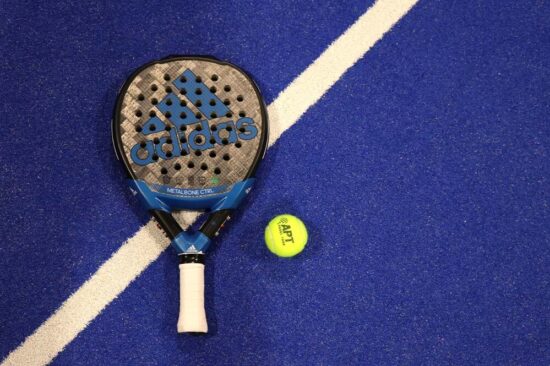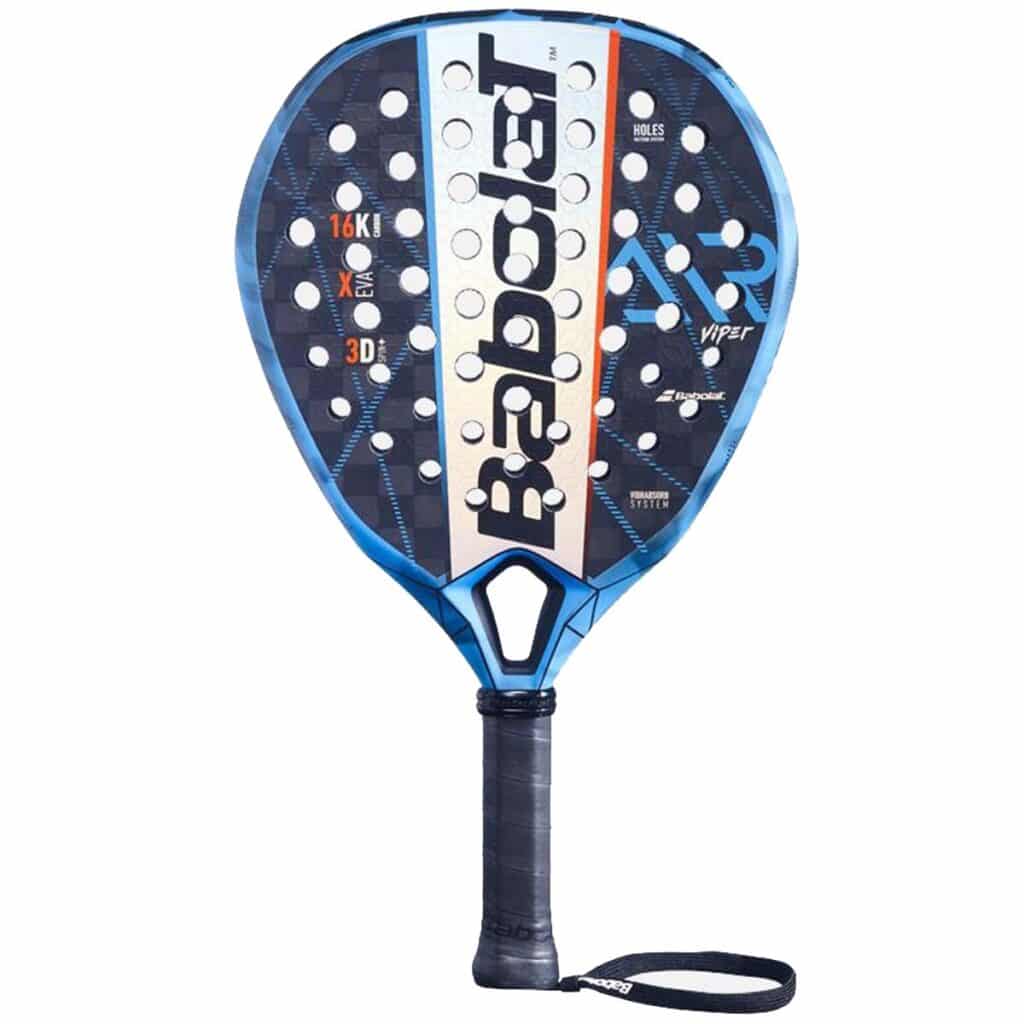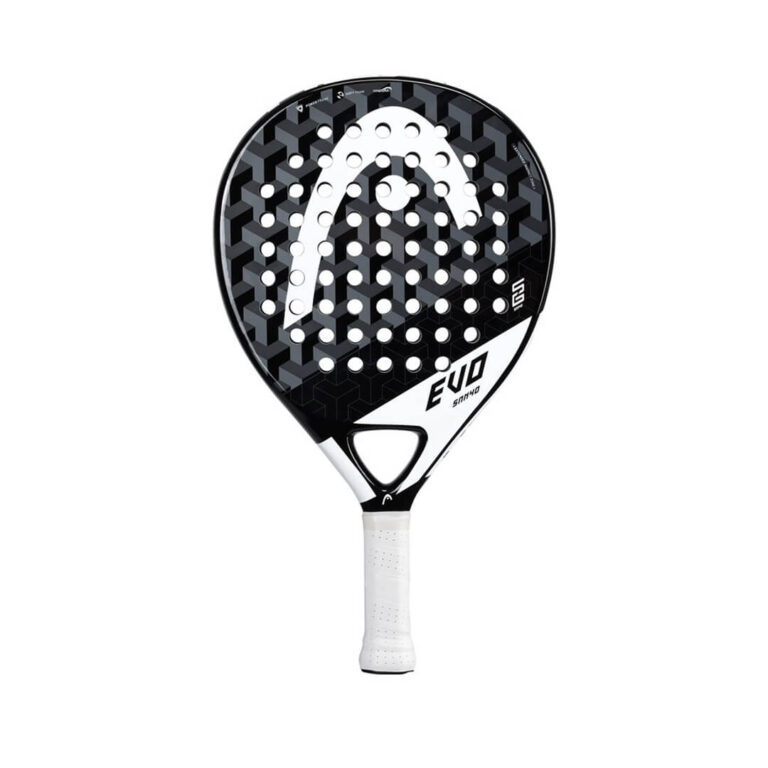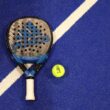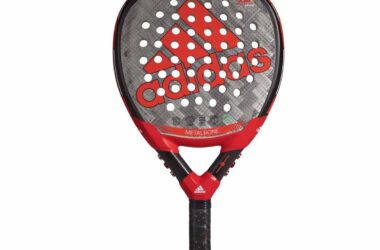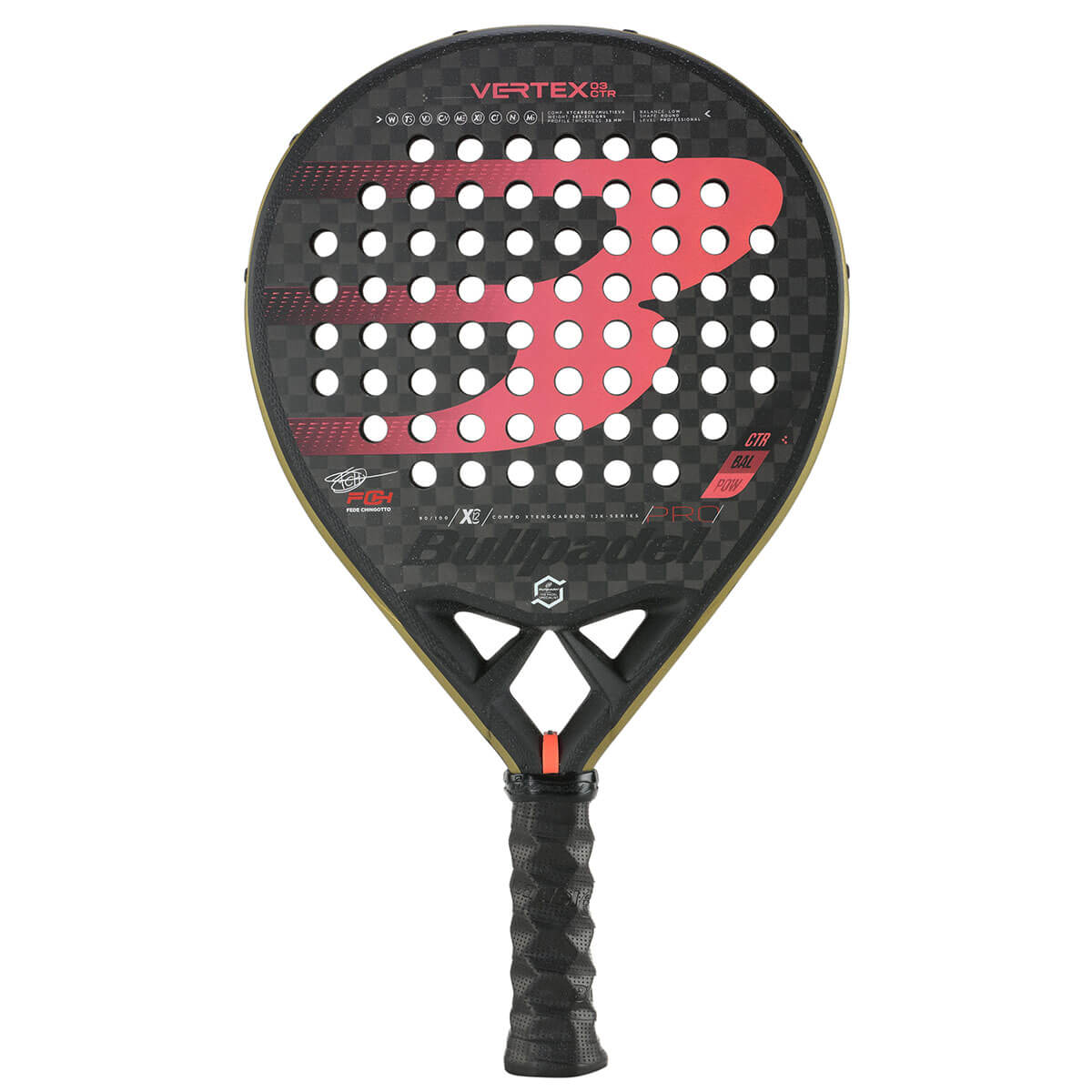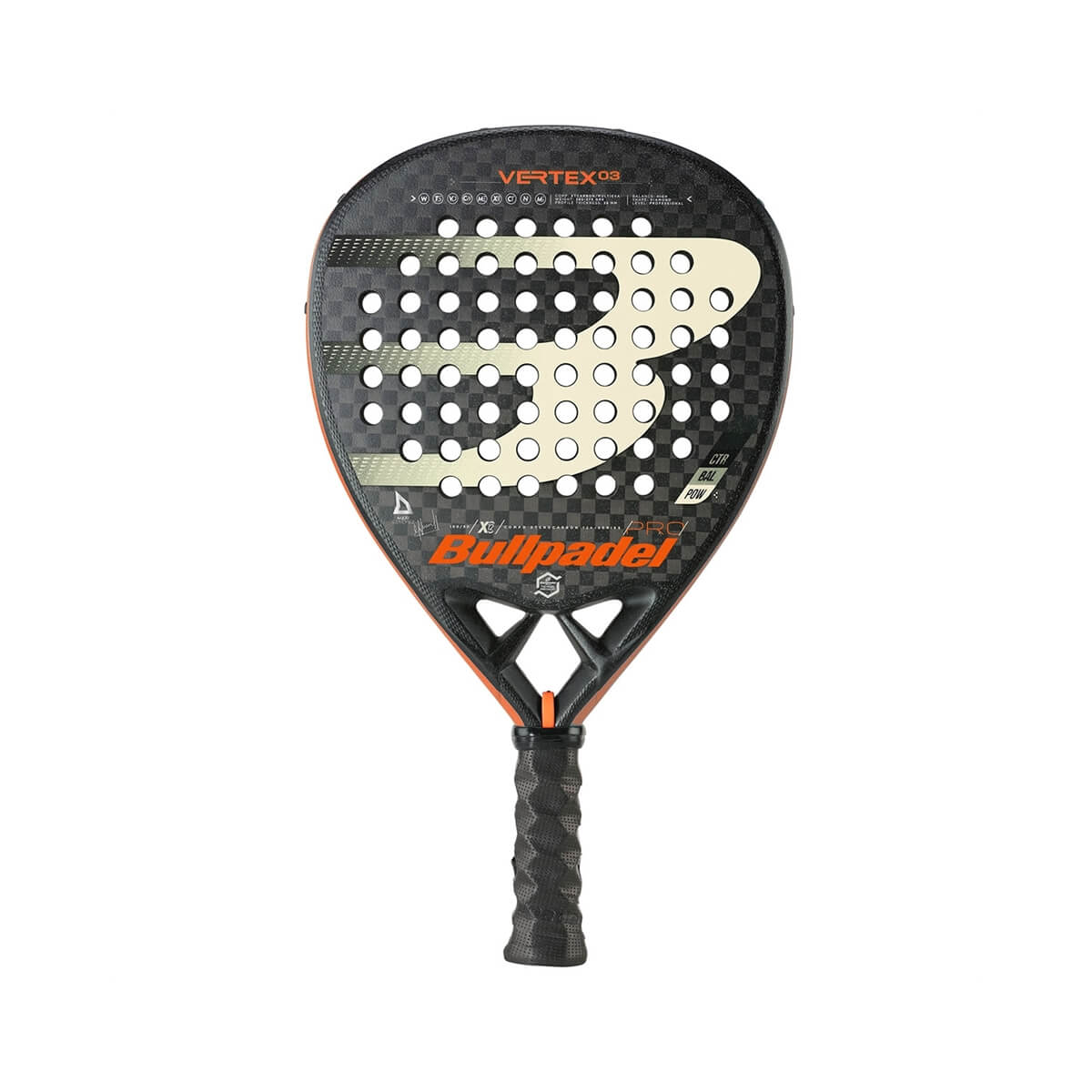In this article we will help you choose between a soft or hard padel racket. There are a few things you need to keep in mind when choosing a racket to find the best padel racket for you, your playing style and your level.
In this article we also answer these common questions:
- What are the advantages and disadvantages of soft/hard padel rackets?
- What are the advantages and disadvantages of soft/hard padel rackets?
- Is a soft or hard padel racket suitable for beginners?
- Is soft or hard racket suitable for offensive/defensive players?
- Video test: the best padel racket for beginners
But let’s get started!
Hard padel racket
Hard padel rackets have both advantages and disadvantages, so let’s start by summarising them below. Keep in mind that opinions vary from player to player and that your opinion is subjective compared to others testing similar rackets.
- Good for offensive players
- Extra pressure in the smash
- Often high balance
- Sweetspot often further up the racket
- Difficult to play for beginners
- Hard to defend with
- Less feeling in the strokes
Tips on good hard padel racket
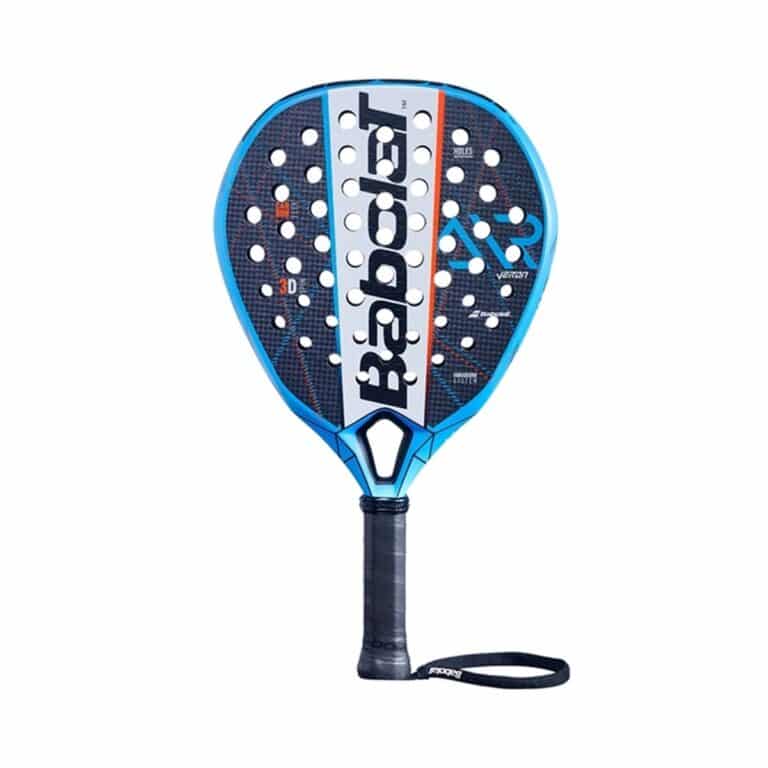
Babolat Veron Air
- Best budget racket with hard surface
Read our Babolat Veron Air review
Here you can buy the Babolat Veron Air
Here you can buy the Babolat Viper Air
Material inside the racket
The core of the hard padel racket needs a hard material and the material that is often used in the base is EVA rubber. With this material, you can get a high density, which gives a harder racket and therefore more power to the hard fastballs.
To get a harder racket, carbon fiber is also used, for both the hitting surface and the frame. It is a strong durable material, but can sometimes be combined with other materials.
Surface
The sweetspot is usually smaller on hard padel rackets and it can also be placed higher up on the racket. A hard padel racket is well suited for hitting hard fastballs and when you want to smash a ball away, a higher sweetspot is more beneficial.
Benefits
For those who like to attack with hard balls and occasionally smash away with real power, a hard-core padel racket is preferable. In addition, they are usually equipped with their sweetspot higher up on the racket, which is preferable, as a proper smash gets the most power higher up.
Nackdelar
Disadvantages can be when you have to face slower balls. Then the player needs to think about giving more power in the stroke so that the ball reacts well on impact.
Soft padel racket
Soft padel rackets have both advantages and disadvantages, so let’s start by summarising them below. Keep in mind that opinions vary from player to player and that your opinion is subjective compared to others testing similar rackets.
- Good for beginners in padel
- Gives you more control over your strokes
- Often low balance
- Often easier to play with (all-round)
- You will lose a bit of power in the smash
- Harder to make a decisive play
Tips on good soft padel rackets
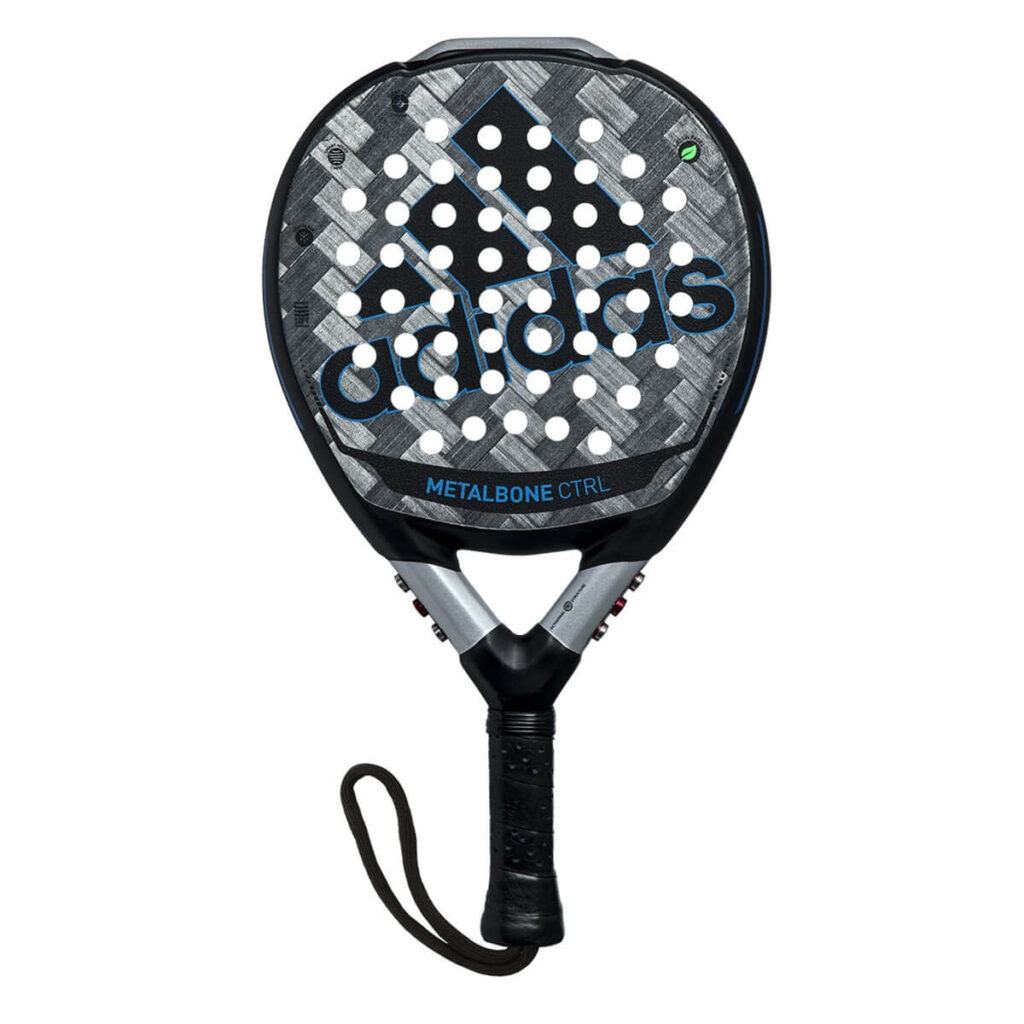
Adidas Metalbone Control
- Best premium racket with soft surface
Here you can buy the Head Evo Sanyo
Here you can buy the Here you can buy the Adidas Metalbone CTRL
Material inside the racket
The soft core of a soft padel racket often has a polyethylene material. This material is more flexible and it creates more chance for the ball to stay in contact with the racket for a longer time. On the other hand, soft padel rackets may also have an EVA foam core, which has a much lower density than the hard rackets.
Carbon fiber is a more durable material, which can be seen in most rackets. However, it is also very stiff, so for softer rackets, it can sometimes be combined with fiberglass, for example. The latter material can be very brittle, so it is rarely used on its own.
Surface
Soft padel rackets often come with a larger surface area, which is also equipped with a larger sweetspot. A soft surface combined with a larger sweetspot makes it easier to hit well.
Benefits
More ergonomic for the body, taking into account that the soft core absorbs the vibrations. The wrist and elbow are therefore less stressed. Which is a good advantage for beginners or those who already have problems with these joints.
Nackdelar
Soft rackets have a good advantage for the soft slow balls, but when it comes to getting the fast balls away, more power is required from the player. Thus, it can be more strenuous for the player to try to smash a ball away.
Watch Micke from Elitepadel test the best padel racket for beginners on our Youtube channel.
Is a soft or hard padel racket best for beginners?
A soft padel racket is a good recommendation for beginners, as it takes more strain off the body. At the same time, it allows them to get soft, slower balls away without using as much of their own power. In addition, soft rackets usually have a larger sweetspot, which makes it easier to get a good hit without creating vibrations in the stroke.
Soft padel rackets are kinder to the player’s muscles, but some beginners may also benefit from a padel racket that has a harder core. However, this depends on how strong the player is, as there is a greater risk of padel elbow if you overexert yourself in the sport. Read our guide to finding the best beginner’s padel racket.
With any sport, there is a risk of injury and in padel, there is something called padel elbow. The pain occurs on the outside of the elbow and the longer the pain lasts, the weaker you feel and the pain will become more persistent even during rest.
If the player is not strong enough for a hard padel racket, painful problems will quickly arise. So as a rule, it is better for the beginner to start with a soft padel racket. Overloading can also occur if you are not used to using the muscles in your arms as much as you do in padel sports.
Should an offensive or a defensive player use a hard or soft padel racket?
Offensive players are often looking for more speed, explosiveness, and power in their padel game. Thus, a hard padel racket may suit them better. Among other things, they will find it easier to smash balls away with good control. They are also likely to be experienced enough in the game or strong enough to be able to give proper power to the slow balls, without the risk of overloading muscles and joints.
Defensive players generally benefit more from a padel racket that is a little softer. With a larger sweetspot and softer core, it’s easier to get power on the slow balls. The ball usually stays in contact with the racket for a longer time, as the core material is more flexible, and the player can also take advantage of this by spinning the ball to confuse the opponents about the direction of the ball.



